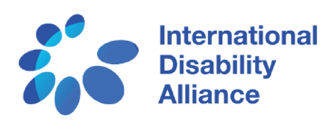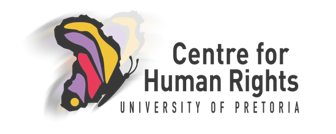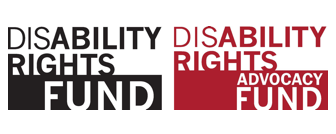COVID-19 Disability Rights Monitor (DRM) calls for an emergency response to the catastrophic abuse of the human rights of persons with disabilities in institutions
20 Jul 2020
On 20 April 2020, the COVID-19 Disability Rights Monitor (DRM) launched an international survey to monitor state measures concerning persons with disabilities amid the pandemic. The initial analysis of the ongoing global survey has revealed grave and systemic violations of fundamental freedoms and human rights of persons with disabilities detained in large- and small-scale institutions, which have become the epicenter of COVID-19 infections and deaths.
While the institutionalisation of persons with disabilities has always been a human rights abuse, our survey demonstrates that the emergency measures that were implemented by governments to control the spread of COVID-19 have accelerated the pre-existing abuses of the rights of persons with disabilities in institutions. These abuses include violations of the right to life itself. For instance, persons living in smaller group homes in the USA are contracting and dying of COVID-19 at a much higher rate than the rest of the population. Institutional residents who have contracted COVID-19 were denied access to the same quality of health care that was provided to other citizens. In Ghana, a resident who tested positive for COVID-19 at the Accra Psychiatric hospital was initially refused access to a treatment center on the basis of being a psychiatric patient. The Special Rapporteur on the rights of persons with disabilities has expressed concerns about the conditions of persons with disabilities who have contracted COVID-19 in Romanian institutions. Residents of Romanian institutions were isolated and quarantined, while staff working at the institution received appropriate medical attention. Eight residents who died at the Maryborough residential center in Ireland were not transferred to a hospital for medical treatment.
Many institutions remain closed off, without any monitoring or complaints mechanisms in place. For instance, in Guatemala three-hundred people with disabilities have been sealed into the Federico Mora psychiatric facility without social distancing or access to hospital care. Authorities have denied access to independent human rights authorities to monitor the health and safety of detainees. Similarly, the Indonesian Mental Health Association (IMHA) knows of some 2500 persons with psychosocial disabilities, locked inside public and private facilities without any protocols to disinfect themselves, personal protective equipment, or access to COVID-19 tests in Jakarta alone.
Of the 1345 survey respondents who were aware of their government’s policy, 84% said that their government had restricted or banned visits of family members, friends, and others into institutions where persons with disabilities live during the pandemic. Family members of persons with disabilities in institutions have expressed grave concerns for their safety and well-being. The survey has received an overwhelming number of testimonies from around the world confirming that governments have not taken sufficient steps to safeguard the right to access food, basic medical supplies, personal protective equipment, or measures (such as social distancing) to minimise infections and deaths in institutions. When Canadian authorities entered the Herron residence in Quebec, they found the bodies of two patients who had died days before they entered. The other residents were malnourished, dehydrated, and severely neglected.
In accordance with their obligations under international law, particularly the UN Convention on the Rights of Persons with Disabilities (UNCRPD), we call on governments, funders, and global actors to take the following emergency response to avoid further catastrophe:
- Closely monitor the situation in institutions and release data and information on the number of infections and fatalities.
- Provide immediate access to food, PPE, and social distancing measures.
- Ensure full access to healthcare on an equal basis with other citizens.
- Implement immediate measures to ensure that residents can contact law enforcement, complaints mechanisms, and also to ensure contact with family and friends.
- Implement a no-admissions policy to large- or small-scale institutions.
- Develop an emergency deinstitutionalisation plan in line with Article 19 of the UNCRPD.
- Allocate adequate financial and human resources to support the transition from residential settings to the community, in line with Article 19 of the UNCRPD.
- Actively involve persons with disabilities and their representative organisations, and civil society, in planning the recovery process, and emergency deinstitutionalisation plans.
We have received an overwhelming response from around the world. We would like to invite governments, persons with disabilities, organisations of persons with disabilities, and other relevant stakeholders to contribute to the survey. Your contribution will support our shared aim of ensuring that the inherent dignity of persons with disabilities is respected worldwide. The COVID-19 Disability Rights Monitor (DRM) survey is available online in 24 languages www.covid-drm.org.
Disability Rights Monitor, Coordinating Group






